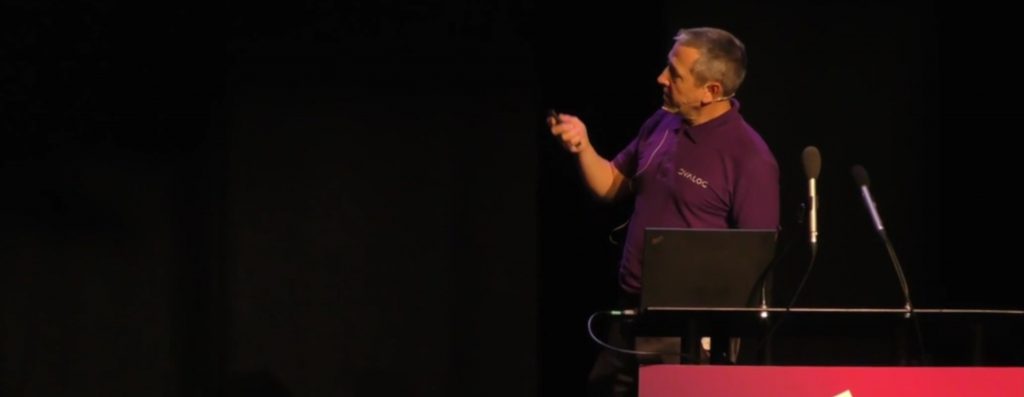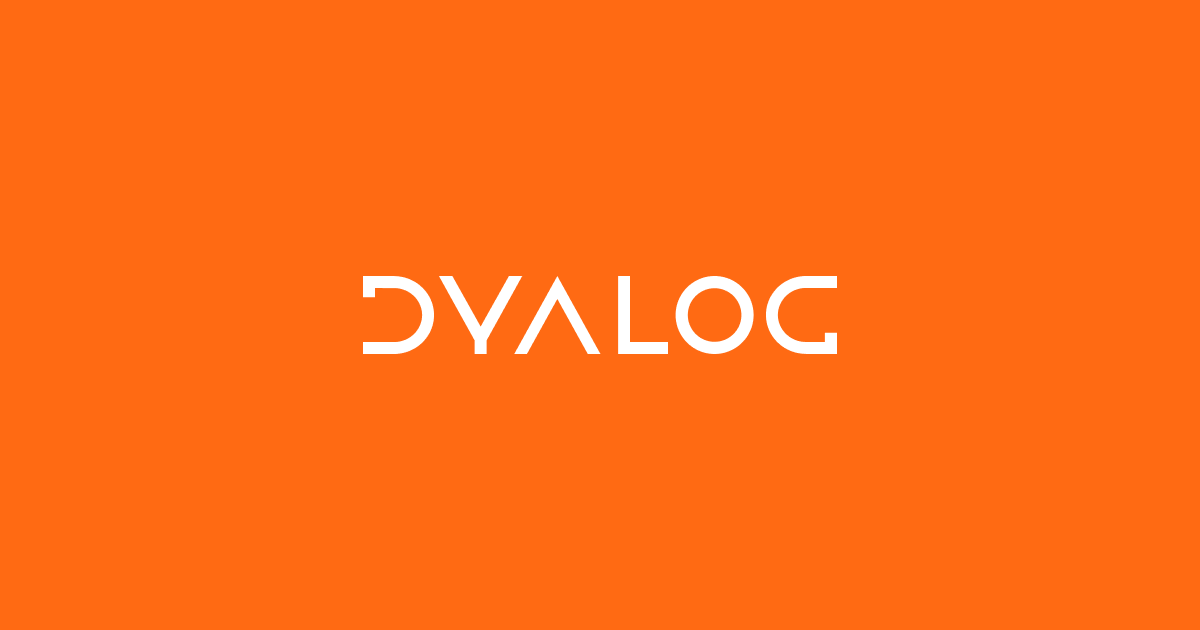We are releasing four talks this week from Dyalog ’18 in Belfast. Three of them focus on techniques for deploying APL applications across all the platforms supported by Dyalog APL, in particular Microsoft Windows, Apple macOS, and GNU Linux on x64 platforms (many tools will also work under IBM AIX and on the Raspberry Pi).
 If that isn’t your sort of thing, we invite you to relax with Dr. Charles Brenner’s entertaining talk on The Manly Chromosome – How Simplicity can be Confusing. Charles is a “purveyor of forensic mathematics”; he participates in CSI (Crime Scene Investigation) using mathematics. When he actually needs to compute a number for a court case, he often does it in APL (did you know how useful
If that isn’t your sort of thing, we invite you to relax with Dr. Charles Brenner’s entertaining talk on The Manly Chromosome – How Simplicity can be Confusing. Charles is a “purveyor of forensic mathematics”; he participates in CSI (Crime Scene Investigation) using mathematics. When he actually needs to compute a number for a court case, he often does it in APL (did you know how useful ×.! is?). Although the underlying subject is a serious matter – the mis-interpretation of DNA data related to the Y Chromosome in criminal cases – the talk is full of humour, although you will need to concentrate as some of jokes are rather understated!

Returning to the theme of the week, my own second presentation follows on from my opening keynote. In the keynote, I whizzed through a flurry of scenarios in which a new user of APL was able to run, edit and debug APL code under Linux without actually installing APL, and then deploy the code as a Web Service using JSONServer, and finally as a Web Application using MiServer. The keynote intentionally did not explain much about the technology. In this week’s talk, entitled Cloud Computing, I reveal some of the details of how the smoke was generated and the mirrors were polished for the opening talk.
 As mentioned, Dyalog APL is available on a variety of platforms. Our goal is to allow you to freely select a platform for development, and independently select a platform for deployment. For example, you might develop and test the application under Windows or macOS, and deploy it to the cloud under Linux. If your application has a user interface, you may be interested in Brian Becker’s talk on Cross Platform User Interfaces, where he presents a project with the internal code name “DUI” (Dyalog User Interface). We’ve been working on DUI for several years as a component of our Web Server framework MiServer. Brian demonstrates the results of this endeavour: the new HTMLRenderer, which embeds the Google Chrome Browser Engine (known as Chromium) inside Dyalog APL for Windows, macOS and Linux. The same code can now be used for MiServer and HTMLRenderer, allowing it to drive UI without a Web Server using the same principles as Node JS.
As mentioned, Dyalog APL is available on a variety of platforms. Our goal is to allow you to freely select a platform for development, and independently select a platform for deployment. For example, you might develop and test the application under Windows or macOS, and deploy it to the cloud under Linux. If your application has a user interface, you may be interested in Brian Becker’s talk on Cross Platform User Interfaces, where he presents a project with the internal code name “DUI” (Dyalog User Interface). We’ve been working on DUI for several years as a component of our Web Server framework MiServer. Brian demonstrates the results of this endeavour: the new HTMLRenderer, which embeds the Google Chrome Browser Engine (known as Chromium) inside Dyalog APL for Windows, macOS and Linux. The same code can now be used for MiServer and HTMLRenderer, allowing it to drive UI without a Web Server using the same principles as Node JS.
 If your application is – or can expose – an engine without a user interface, one of the options for deployment is to run it as a Web Service. This makes it callable from anywhere that can connect to it via a network, for example using the JSONServer as demonstrated in my opening keynote. Marko Vranic’s talk on Severless APL demonstrates the latest fashion in deployment technology, where individual functions – rather than applications – can be deployed to the cloud (or a collection of internal servers). Obviously, the name is a little misleading since the functions do run on servers. The point is that you do not need to define a new server or even a container for your application; once the Kubeless environment is set up, developers can continuously deploy new or modified functions into the “serverless” framework from the command line. The framework takes care of encryption of network traffic, allows you to control access to your functions, and lets you manage scaling and load balancing. This talk probably contains a bit more technology and more moving parts than many APL users will be comfortable with, but the important point that Marko makes is that we have all the pieces required to use APL in scenarios where extreme security and scalability are a requirement.
If your application is – or can expose – an engine without a user interface, one of the options for deployment is to run it as a Web Service. This makes it callable from anywhere that can connect to it via a network, for example using the JSONServer as demonstrated in my opening keynote. Marko Vranic’s talk on Severless APL demonstrates the latest fashion in deployment technology, where individual functions – rather than applications – can be deployed to the cloud (or a collection of internal servers). Obviously, the name is a little misleading since the functions do run on servers. The point is that you do not need to define a new server or even a container for your application; once the Kubeless environment is set up, developers can continuously deploy new or modified functions into the “serverless” framework from the command line. The framework takes care of encryption of network traffic, allows you to control access to your functions, and lets you manage scaling and load balancing. This talk probably contains a bit more technology and more moving parts than many APL users will be comfortable with, but the important point that Marko makes is that we have all the pieces required to use APL in scenarios where extreme security and scalability are a requirement.
Summary of this week’s videos:


